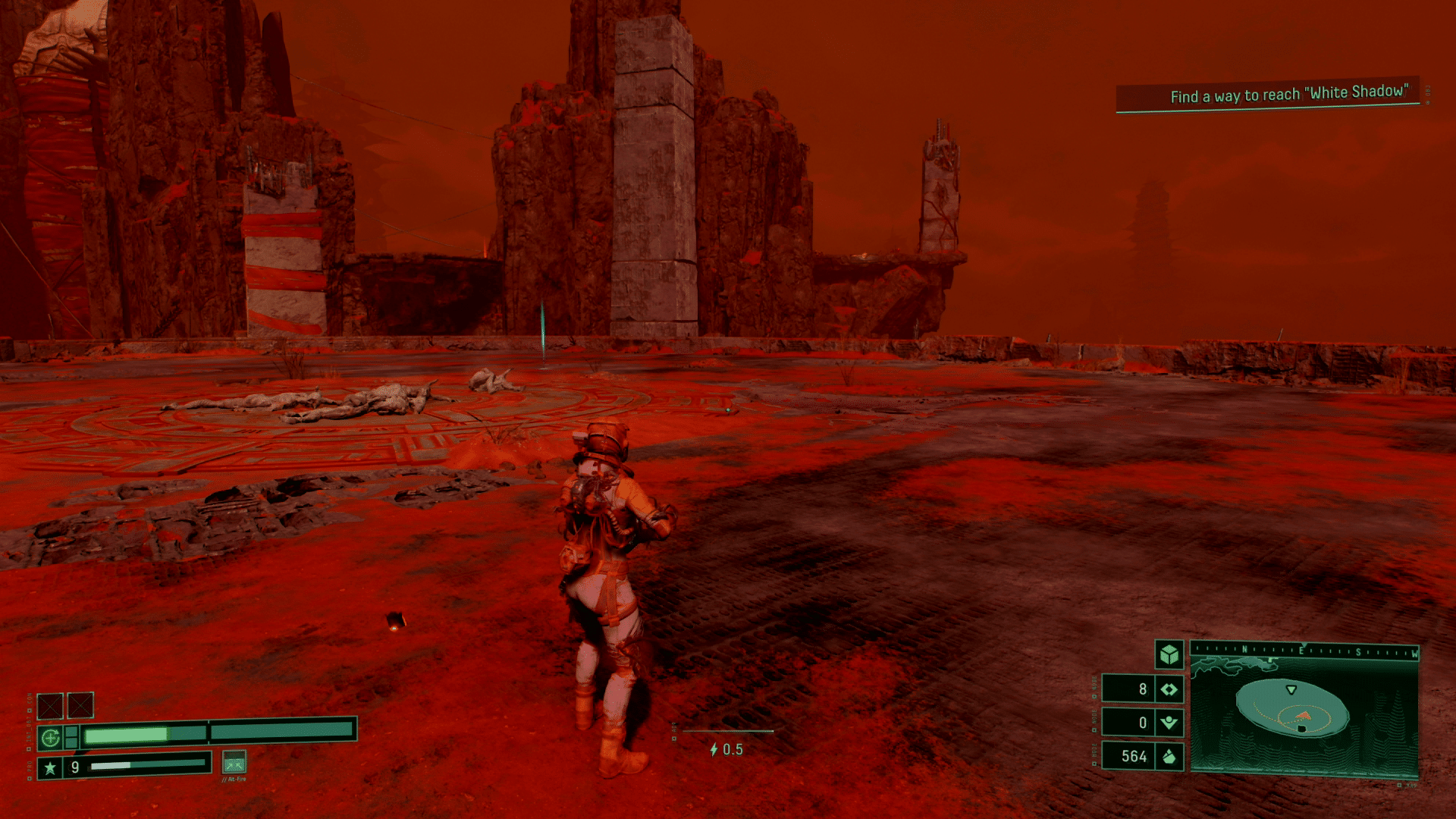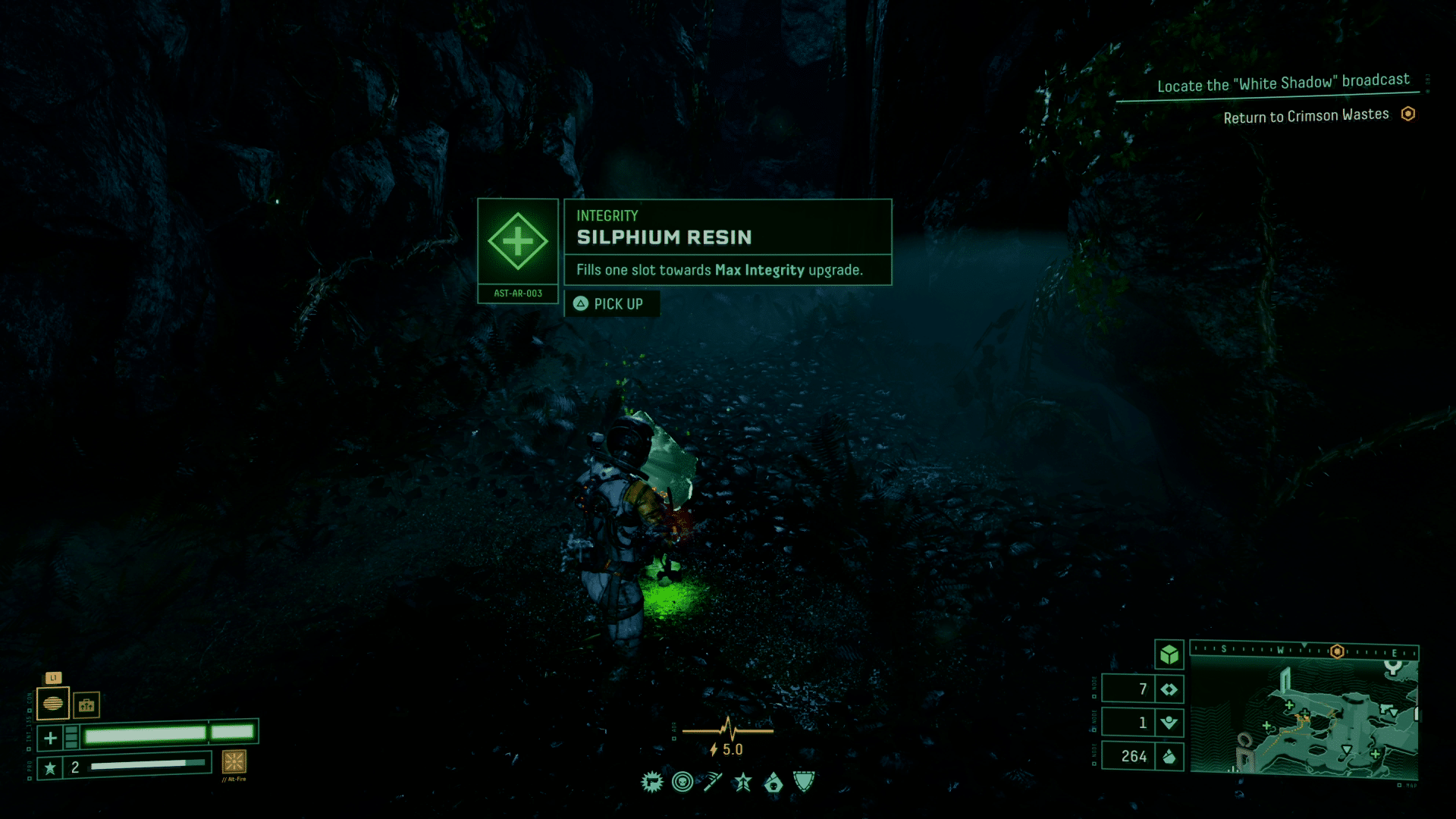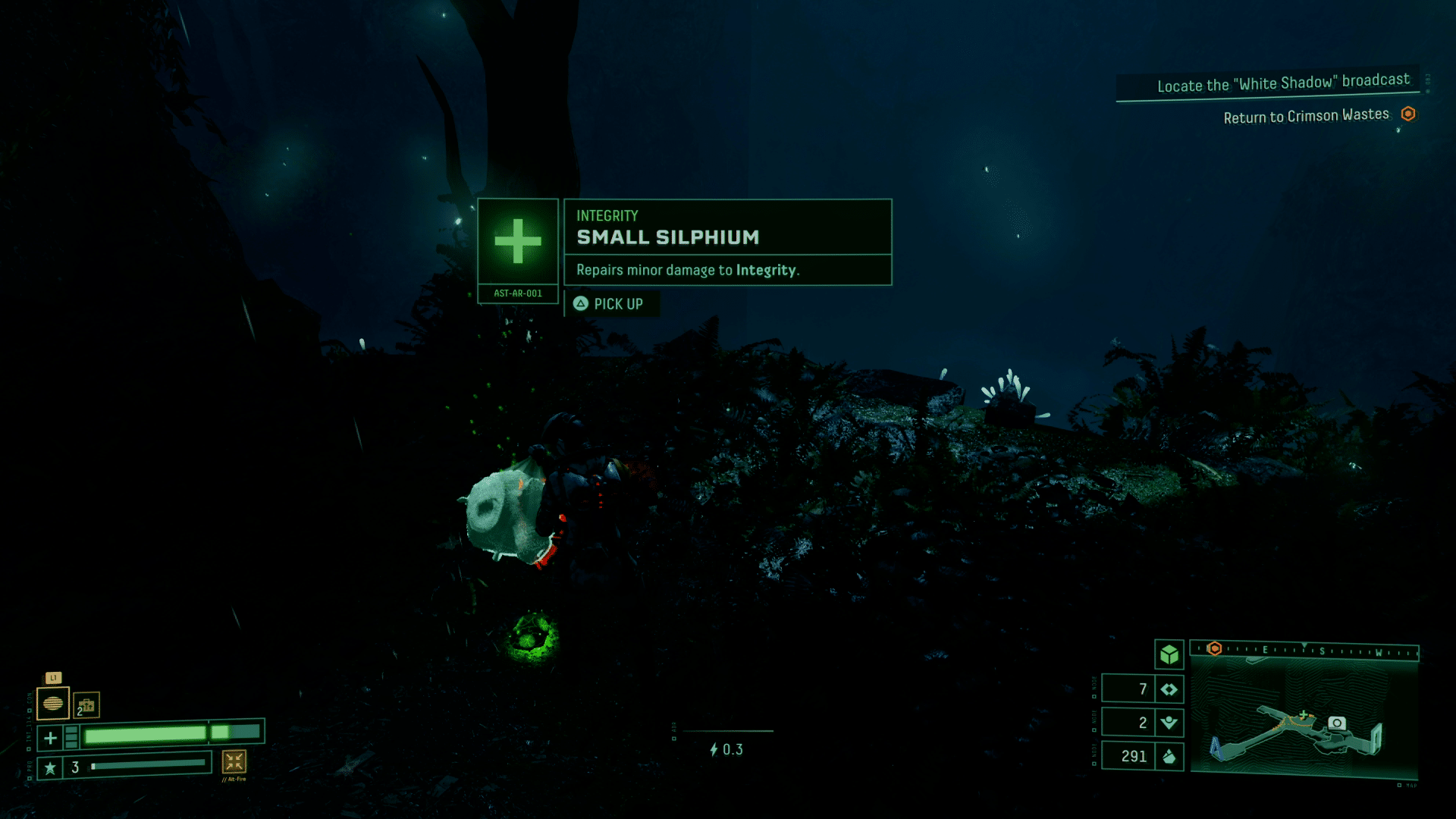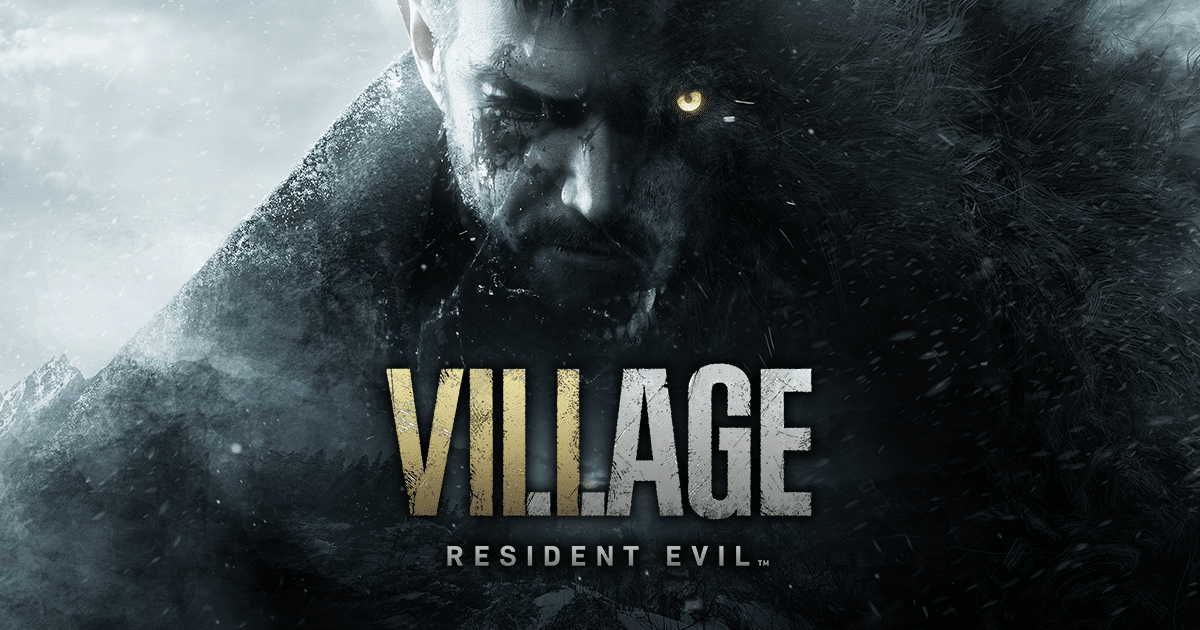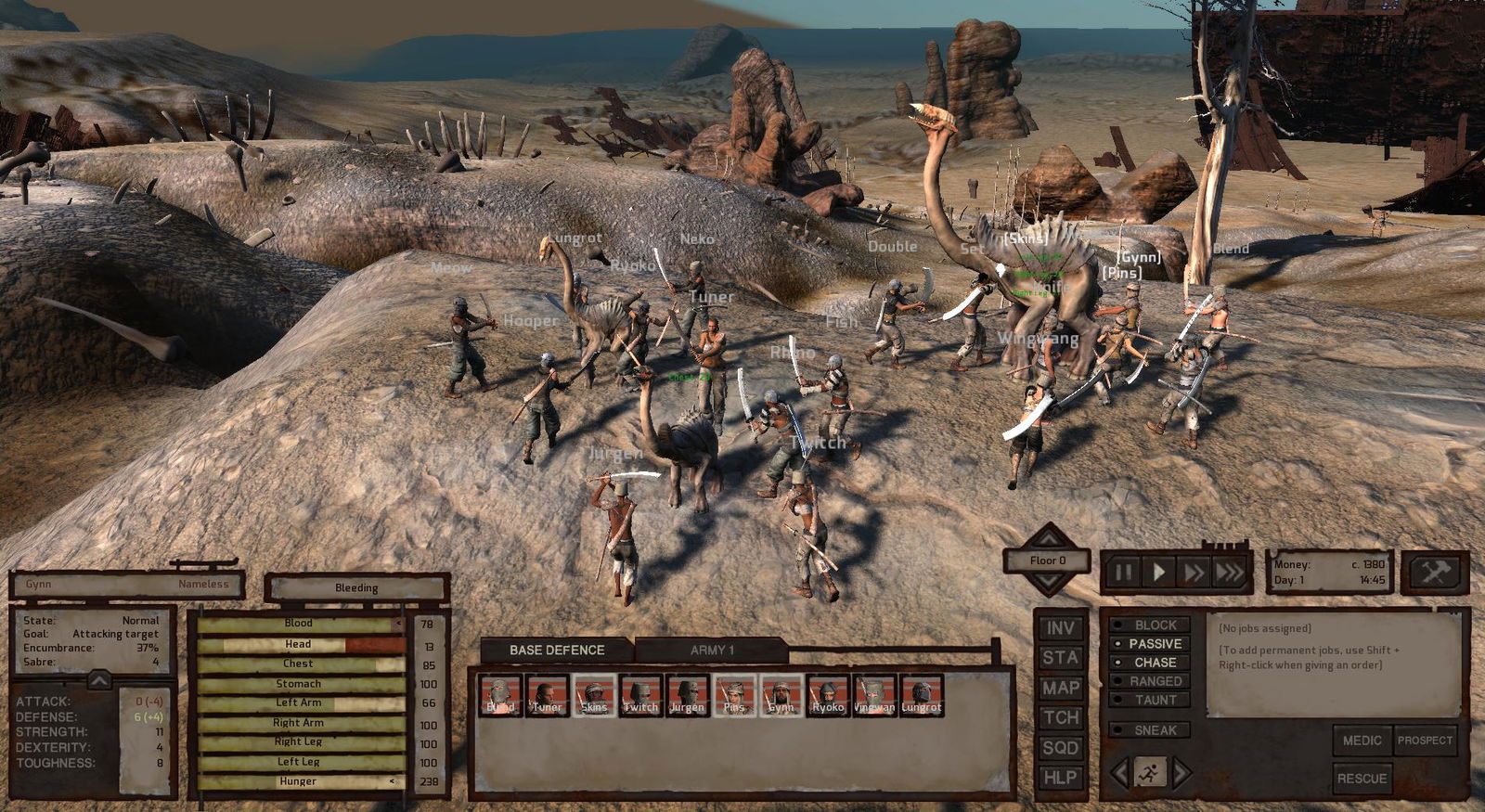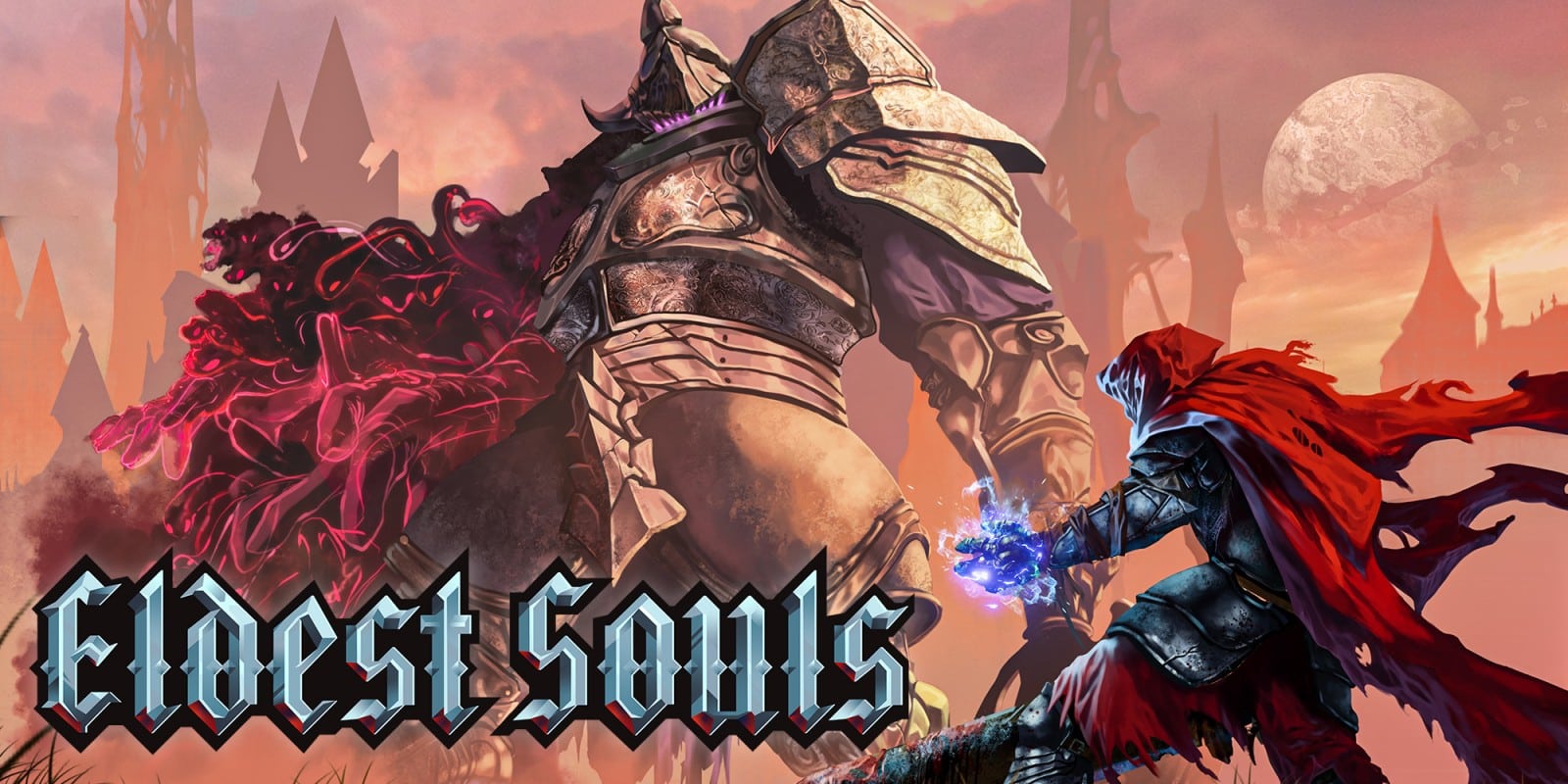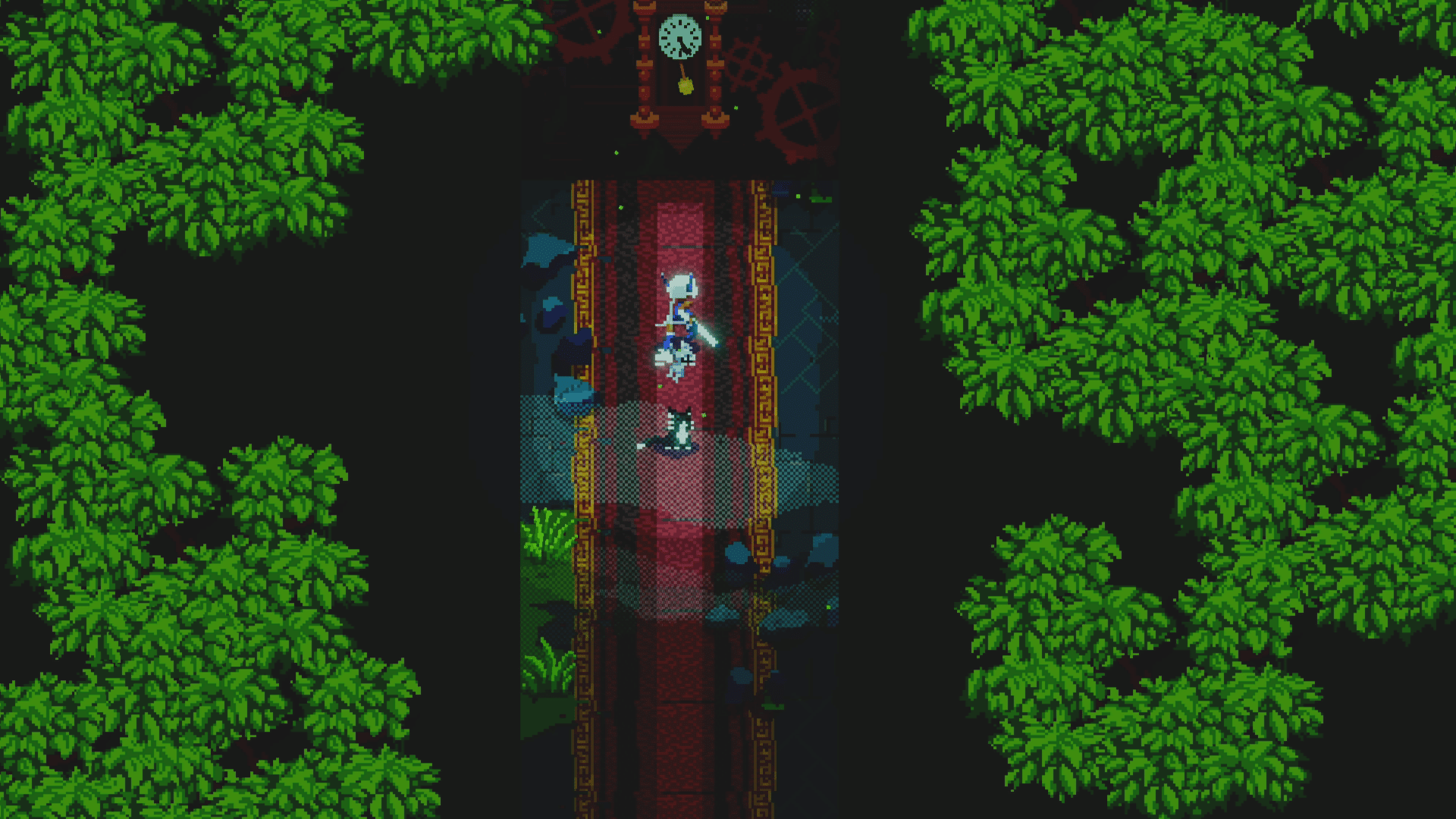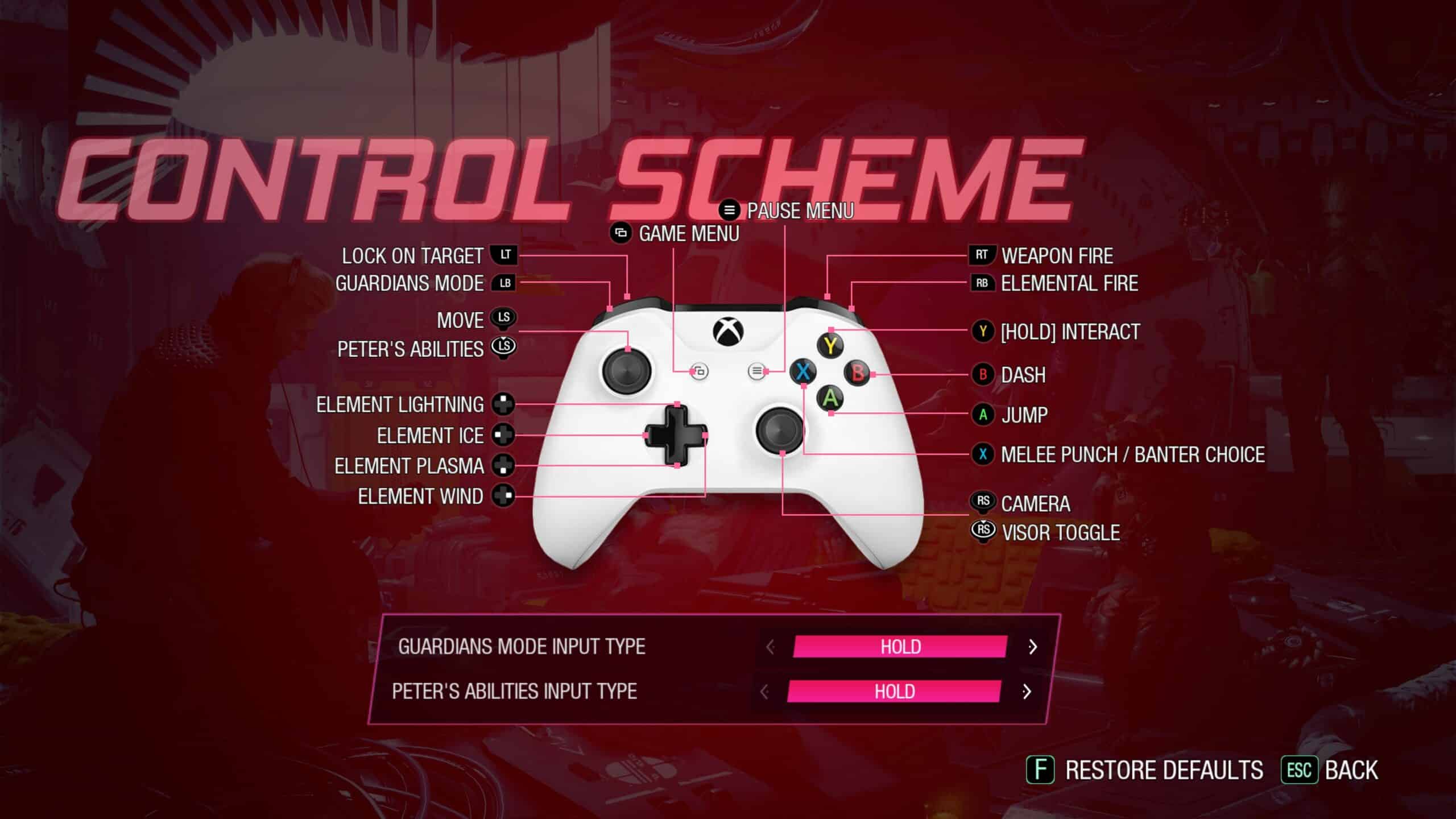We all have different backgrounds and said experiences make us more or less proficient at any given task. Unlike a lot of people, I actually love the roguelike and rougelite genres. After mastering Enter the Gungeon, Dead Cells and many others, Returnal isn’t such a massive departure. While I might have specific skills that make Returnal easier, said skills are learnable, so here are some tips and tricks to make your journey easier.
Monitor Your Health
One of the simplest and easiest methods or increasing your runs is to know the difference between Silphium and Resin. While all health pick ups are Silphium, occasionally they’ll be Resin, a resource that increases your maximum health. Those without a lot of skill can use these to increase your margin of error, making later sections much easier. What a lot of people don’t know is all Silphium becomes Resin when Selene is at full health. Naturally, this leads to two extremely important tricks.
Leaving health pick ups isn’t problematic. Selene can return at any time and heal up. There is no negative and extremely useful in situations you might have to save that lifeline over using it towards increased health. The other is using beds effectively. Occasionally there will be places to lie in a bed and it will repair Selene. Doing this before the boss or after killing the boss is a great way to potentially change all the healing items to Resin so you’ll go into the next area will full health. What a lot of people don’t realize is her ship, if accessible after leaving the starting area, will heal you. A common strategy is to clear the first area, sleep, get full health and then pick up all the health resources to increase your health for the second area and/or boss.
Pay Attention to the Map
Returnal gives a shocking amount of information freely. The map will tell you enemy locations and placements, along with indicate where you might want to go. This guide won’t touch on the full legend, though that can be found here, but I will say to pay close attention to it. Blue doors are always something positive for Selene, though in area two and later there is a chance of hostile activity, with others indicating stores, key locations and helpful items.
Beyond the map, Returnal gives players a good idea of their surroundings. Enemies will have a red circle, even though objects, so they always know what’s coming and how to overcome it. The ring around Selene also indicates incoming attacks. Paying attention to all of these things can be incredibly difficult, though they will save you.
It’s Only Somewhat Random
One of the biggest fallacies in roguelike games is that everything is random and the maps are totally different. While it’s true that things are different and every adventure will offer different challenges, they also follow rules and guidelines.
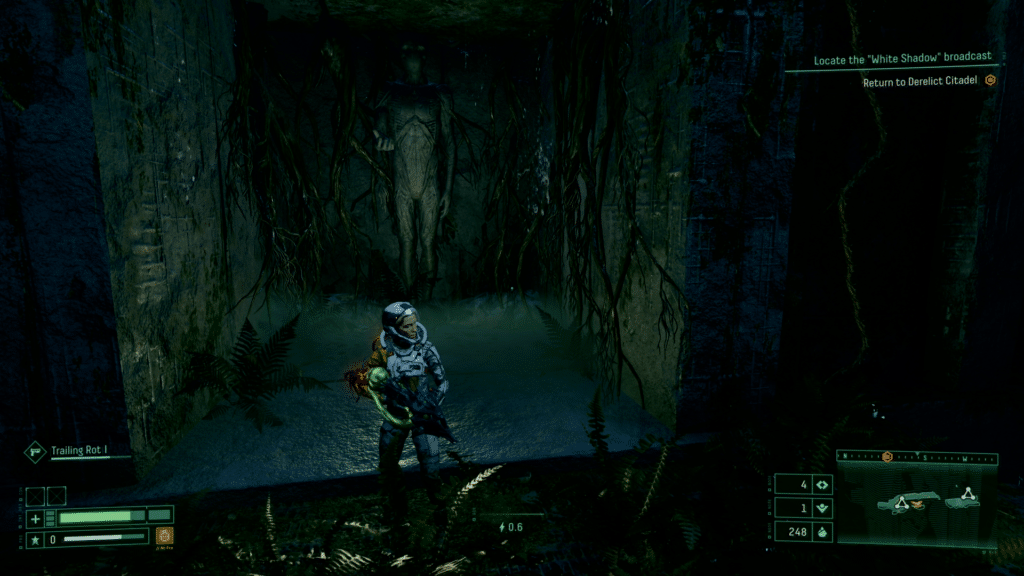
Unless you live in the moment or are fairly unobservant, you might realize recurring designs and elements. No, you’re not going insane or were super lucky, games like Returnal have to have some level of structure for them to balance it correctly. I included the image above because it’s a spot I ran into on, I believe, every run I’ve ever had in the first area. The area itself isn’t important, as much as how predictable it is.
When I see this landmass I know two things. This place will spawn enemies, it just becomes a question of whether they spawn on the right side when you make it to the back, the left side or both. On most runs I make it to the Proximity Translocator and Lamiadon (the annoying flying enemies that rush you) attack. Occasionally Strixera (they’re the flying jellyfish enemies) will spawn instead, but it’s a very conditional section. I know what to expect, how to play and what to do. Spawns aside, the place shown in the image above always seems to be there. This will take you to a room with some kind of benefit to it. Maybe it’s parasites, an item, who knows, but in any run where I went to this location, that spot spawned.
These rules occur on a macro scale and are essentially to being successful. Every floor has an Xeno-Archive, the first one always has a free to open chest to the left and a corrupted one in the middle, there is always an weapon before fighting the first boss, somewhere on the first floor there is a dedicated item room, etc. In all my runs I’ve never had one where a level broke these rules and guidelines. As a result, it makes them super easy to transverse, because there are predictable elements. Even if I don’t fight the boss, that is a free weapon. Without bothering with the Xeno-Archive, I know I’ll get something. Even some of them just make layouts super easy. I almost never take damage in the shown spot because I know what to expect. Sometimes it’s 20 maps into the game, other times five but it never surprises me and the sooner you realize that the better.
Use Your Surroundings
It might not be impossible to dodge everything but it’s certainly more stress than it’s worth. Often times the best tactic is to simply use the environment in your favor. One of the simplest and most commonly used method is exploiting doors. Most enemies don’t handle them well and they can be used to instantly block all incoming attacks, sometimes the AI is hard coded not to leave, making them easier to pick off and far more manageable. But, even without doors, structures enemies can’t break and other objects are a fantastic way to stay alive.
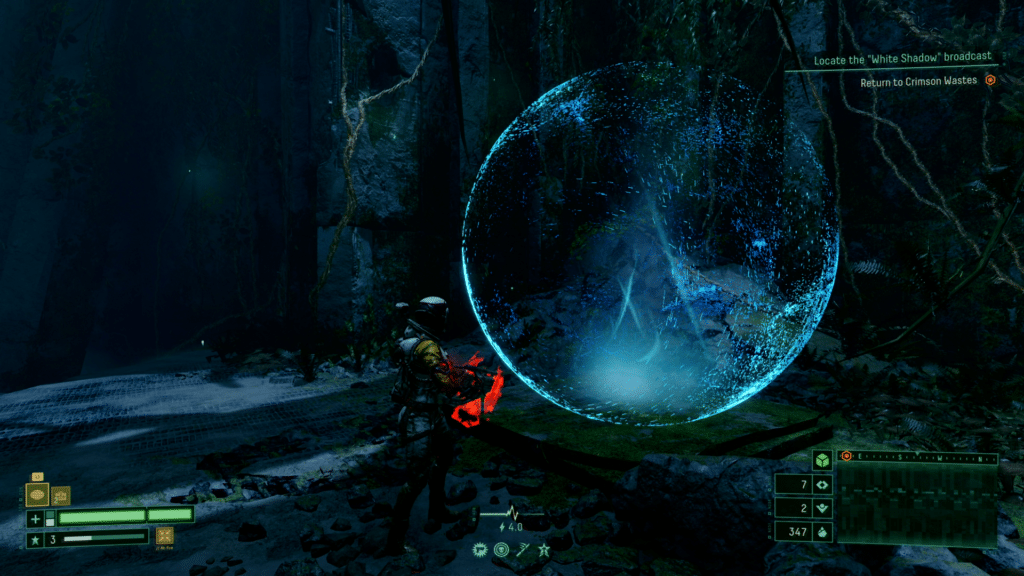
Read Every Item
Returnal is surprisingly forthcoming with information. Practically every item, parasite and weapon will tell you exactly what it does and you’re able to make an informed decision. I always suggest picking things that positively impact your goal. Sometimes it might be a trophy, so I’ll take a bad fifth parasite to get that over avoid it for a chance to continue forward. Sometimes I’ll fight the boss because I found an item box and that is a guaranteed way to unlock said item. Other times I just use guns that have skills I haven’t mastered so they’ll be unlocked going forward.
But, a huge part of these items is really planning ahead. One of the simplest examples was a shop I located in area three. I found a healing item, had an item that boosted integrity gains and it became a question of which one do I pick. Since I knew I had to heal, I simply used the boost and then used the healing item giving me full health. Little things like this can honestly save a run.
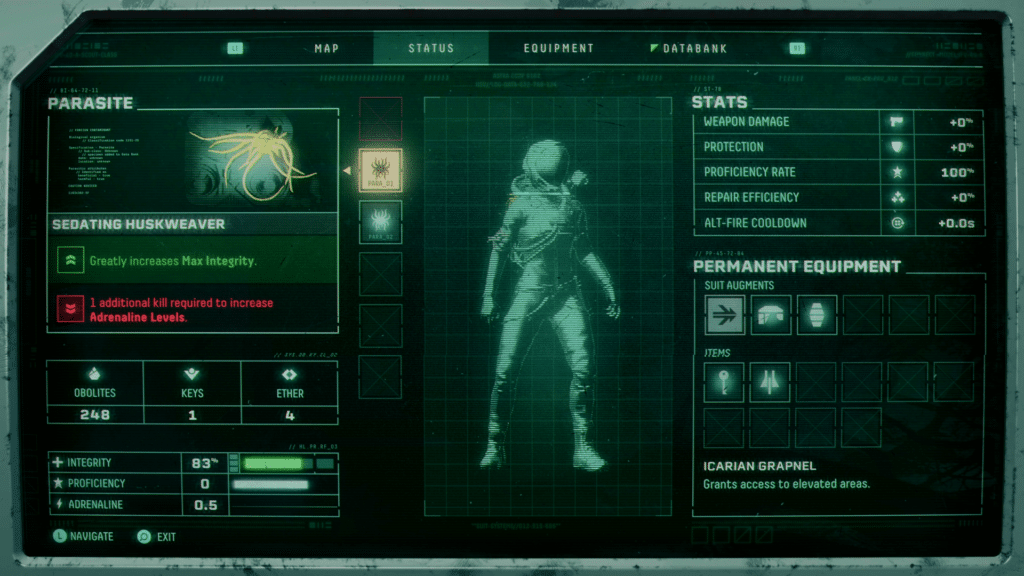
Calculated Risk
As you progress in Returnal, choices become increasingly less obvious. One thing I like to do is manage my risk by using items to my advantage. One example of this is Expired Resin. These items will either grant progress towards more integrity or hurt you. It’s a risk versus reward sort of deal and while experience suggests they lean more towards reward than punishment, it’s still a risk. Instead of bothering, if I have an item that heals me at low health, I simply wait until it’s a good time to mess with them.
If you’re already low enough for that perk to activate, picking up these items has no actual risk. Either it will work as intended or deal damage. However, damage dealt will simply be healed and you’ll end up with the same low amount of health. Or, if I know there is a healing table or I plan on healing and there will be HP wasted, I’ll pick them up and heal away my mistakes.
Other times, if it’s clear my run is not going to end well for any reason, I start taking more risks. Getting to the second area and finding a Hollowseeker will help you more than getting to the second area and making it to room seven instead of five. While uncommon, these risks sometimes pay off by giving better weapons or supplies, allowing Selene to come back. I wouldn’t suggest risking a good run for the chance at a better run but if your loss is all but guaranteed, might as well make the most of it.

